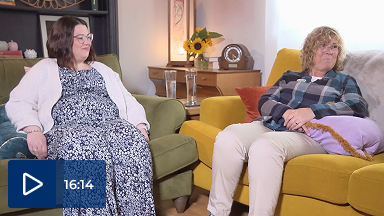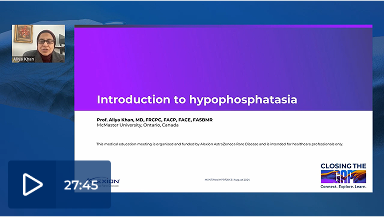
healthcare professional


Key question addressed within this educational session:
VIDEO HPP diagnosis: from patients’ perspectives As clinicians focus on clinical data/parameters, it is important to consider the realities of living with hypophosphatasia (HPP) – from the patient’s perspective. In this video, members of a family based in North Wales, United Kingdom, share the stories of individuals from three generations as they go through their diagnoses of HPP.

VIDEO Introduction to HPP and the HPP diagnostic criteria This session provides a concise overview of hypophosphatasia (HPP), an inherited, metabolic, systemic, rare disease that affects people of all ages with a broad spectrum of clinical manifestations, high disease burden and substantial negative impact on quality of life.

